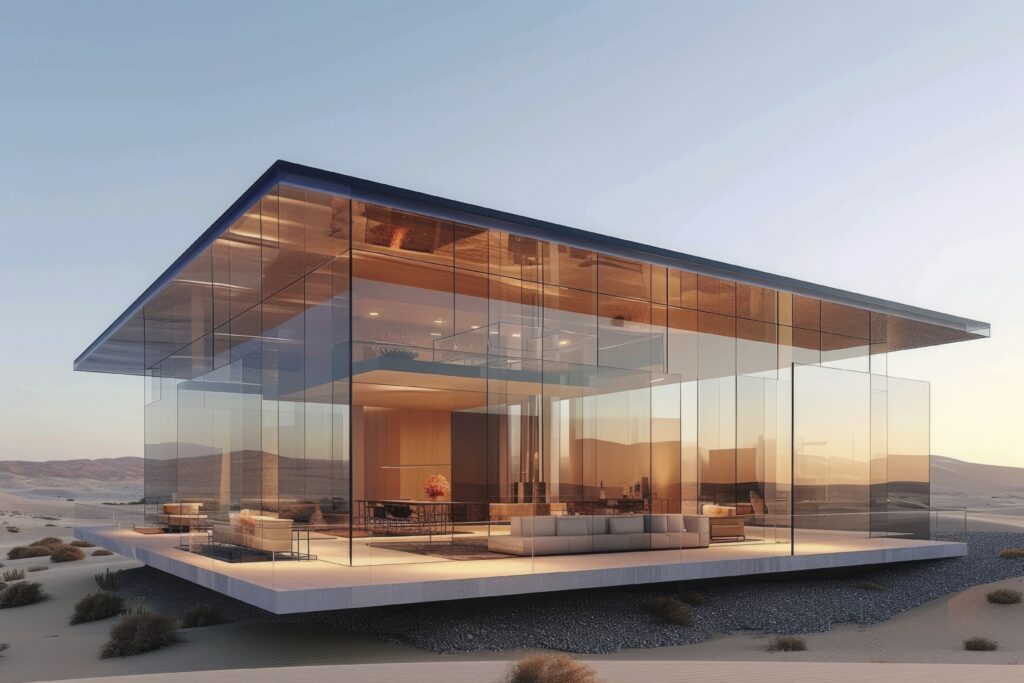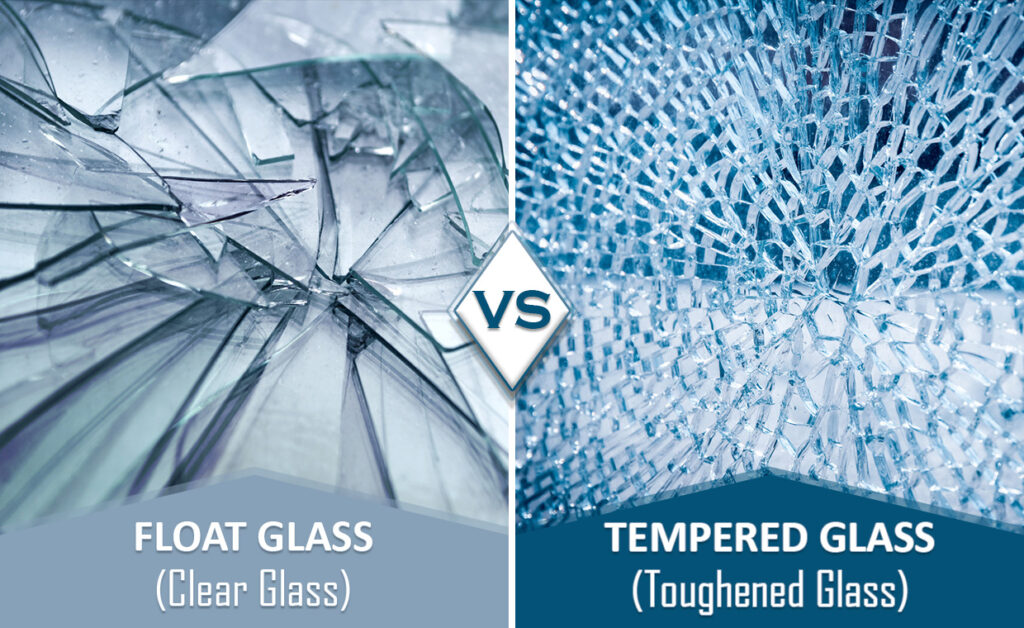Glass work is not just all about elegance and delicacy for offices. You might have seen the greenish-clear glass in the office or on the table, well that is a float glass.
There are hundreds of styles, built designs and properties that make this durable enough for most of the properties such as restaurants, homes, workplace and more.
Today we will exclusively talk about the Float glass and how they can be your next renovating choice.
What is Float Glass?
Float glass is basically a sheet that has been created or designed with molten glass on a bed of molten metal in lower melting point, usually liquid tin. Float glass has a uniform thickness and is extremely sleek for its look.

Float glass is also termed flat glass and the production of flat glass is quite careful. The molten glass is applied on the liquefied tin because glass is lighter as compared to the tin, it floats.
Other Names of Float Glass
It’s just a regular glass however, it’s also known as soda–lime–silica glass, Sodium carbonate-calcium oxide and soda-lime glass. However, those are rather technical names so in day-to -day life we just refer to them as ordinary glass or float glass.
Where is Float Glass used?
Float glass is extremely useful for most of the industries. From home and furniture to professional and heavy grade work, this glass has been in use for its properties and performance. It’s mostly used in;
- Construction
- Automotive
- Electronics
- Solar energy
- Furniture
- Art and decoration
What are the uses of float glass?
Float glass is usually suitable for windows, doors and facades. However, it’s also commonly used for mirrors, furniture such as in tables and shelves etc. float glass has no bubbles of air or defect making it perfect for windows and windshields. The utmost clarity, distortion-free vision and the sleek outlook make it perfect for furniture as well.
For the glass industry, the float glass is certainly a remarkable achievement that further delivers flawless furniture and looks exceptionally newline.
5 Types in Float Glass You See in Daily Life
There are many types available in a float glass and each has its different purpose to install and to be used as. So if you are about to buy glass for your home renovation let’s have a look at its common types.
Clear Glass
One of the most common types in float glass is the clear glass. Its usual hand has the transparent and clear greenish coloration. Featuring the highest degree of clarity this glass lets the view uninterrupted and mostly 90% light can pass through it. Therefore, it’s best for doors, windows, solar application etc.
Tinted Glass
Tinted float glass has a coating of multiple oxides on the float glass surface which makes it tinted.
However, there are many different shades or colors in tinted float glass unlike the clear glass. You can choose brown, bronze, green, gray, black and other colors in tinted glass. There is minimal heat transmission in this glass and the same is the case with light. It’s mostly used in windows.
Wired Glass
This type of float glass featuring wire mesh or grid is inlaid during the manufacturing process. This glass has better resistance for thermal stress and it’s ideally best because it’s rated as fire-rated glass.
Moreover, wired float glass type is not much expensive making it best for sure. It’s mostly used for windows in stairways and hallways, also in public buildings such as schools, government offices, business centres.
Extra Clear Glass
This float glass features greenish blue hue and has the best transparency. The color hue is slight which makes it best for clarity and see-through window.
Also it lets 97% light in. It is mostly used in tabletops, in the showroom of jewellery items, watches, crystal ware items, fine fabrics and art ware items, aquariums, etc. for a sparkling display.
Patterned Glass or Textured Glass
Patterned or textured on float glass is achieved during its manufacturing process. This type of float glass is extensively used as decorative application and decor objects, shower doors, furniture and for doors and windows.
In What color float glass comes?
There are many colors available in a float glass. Float glass comes in different tints and color tones such as Euro Bronze. Light Green, Green, Blue Green, Energy Green. Ash, Euro Grey, Dark Grey.
Benefits of Float Glass
Float glass has multiple benefits where the aesthetics and maximized clarity are the top ones. Other benefits are:
Energy and efficiency of a float glass makes it ideally preferable for solar energy works and there is ideal heat loss. It’s also best for windows and doors that are energy-efficient.
Adaptive approach of a float glass is amazing. You can get it cut for making shower doors, windows, doors, tabletops, and for decorating projects without making it look distorted.
Optical clarity means the glass has the most ideal see-through rate and there is no distortion, smudges or abrasion on the surface. Therefore you see mostly floating glass on windows.
Durability is another factor that surprises everyone. Being a glass, float glass durability is incredible and its strong resistance towards brittleness is amazing. It’s also scratch-resistant and super easy to clean.
Easily available for most of the time is the best benefit for those searching for it. Float glass is not rare or hard to find. Also it is available in different variations of thicknesses and sizes.
Disadvantage of float glass
One of the main disadvantages of float glass is that it is very much likely to get scratches and abrasions. Therefore, its not suitable when it comes with surface contact.
What are the Properties of Float Glass?
- Its durable
- Its Recyclable
- Offers transparence
- Offers Hardness
- No absorbance
- Great electric insulator
- Low thermal conductivity
- Sources largely found in nature
Should You Use Float glass?
Float glass is exceptionally best for its performance and availability. Its clarity and durability is the best thing when you want to use it as windows doors and for buildings. It has multiple applications and uses for modern architecture.
How is tempered glass and float glass different?
Float glass and tempered glass are often confused with each other. The difference in booth glasses is tempered glass bear thermal tempering process for manufacturing so that it becomes tough.

On the other hand float glass is manufactured with ingredients (silica, lime, soda, etc.) These ingredients are heated in a furnace to around 1600°C to form molten glass. Later the molten glass is fed onto the top of a molten tin bath.
